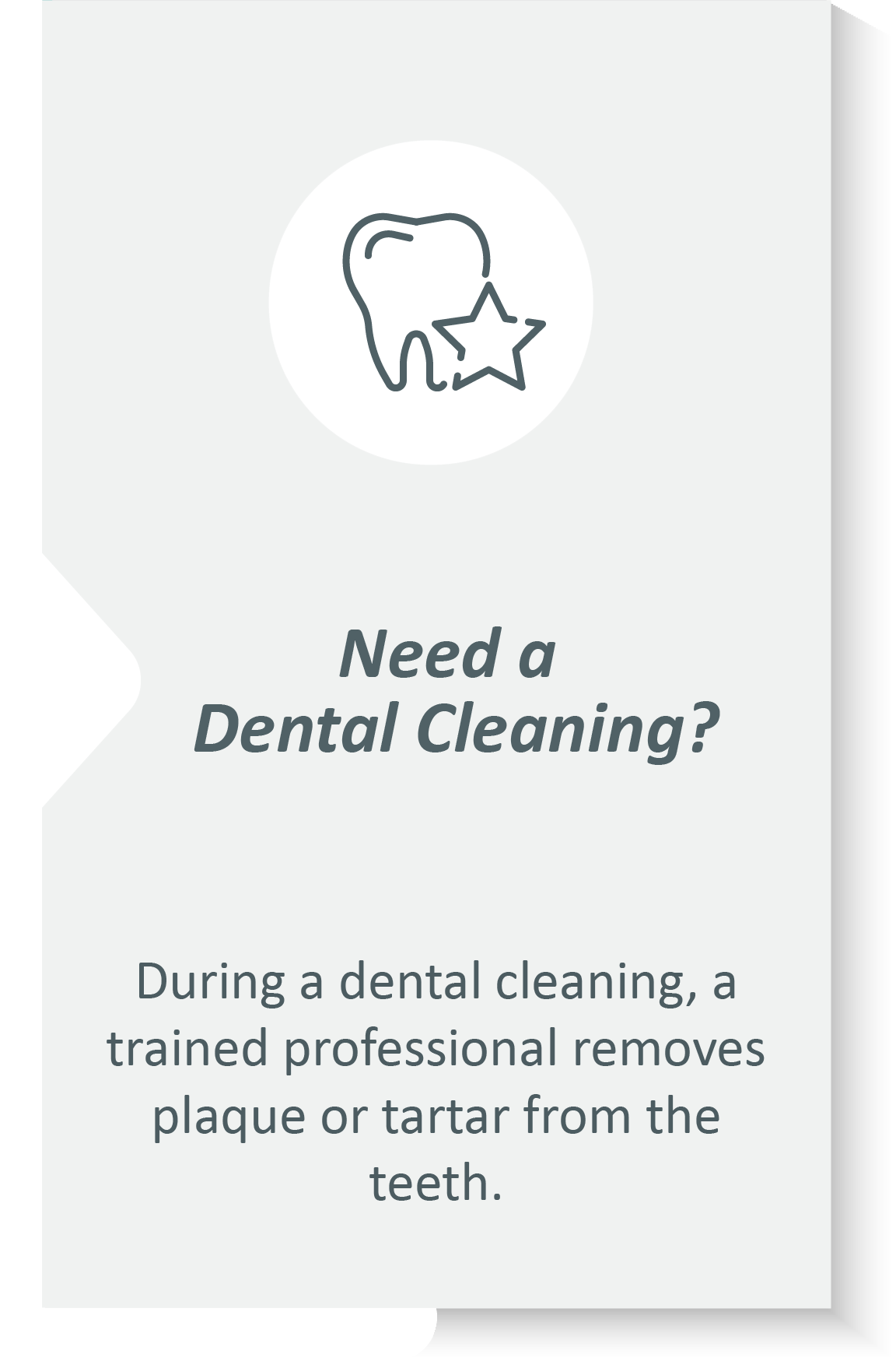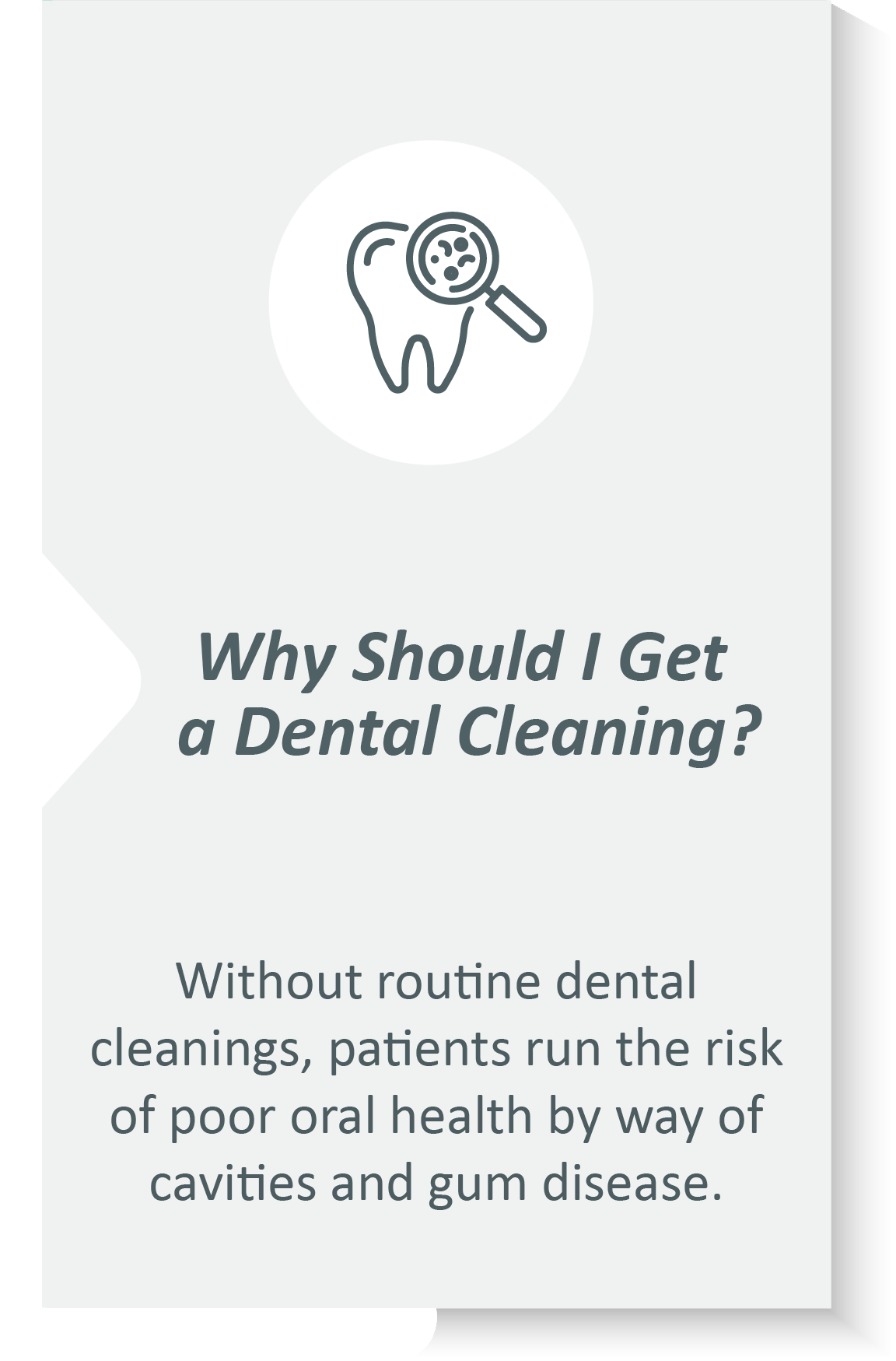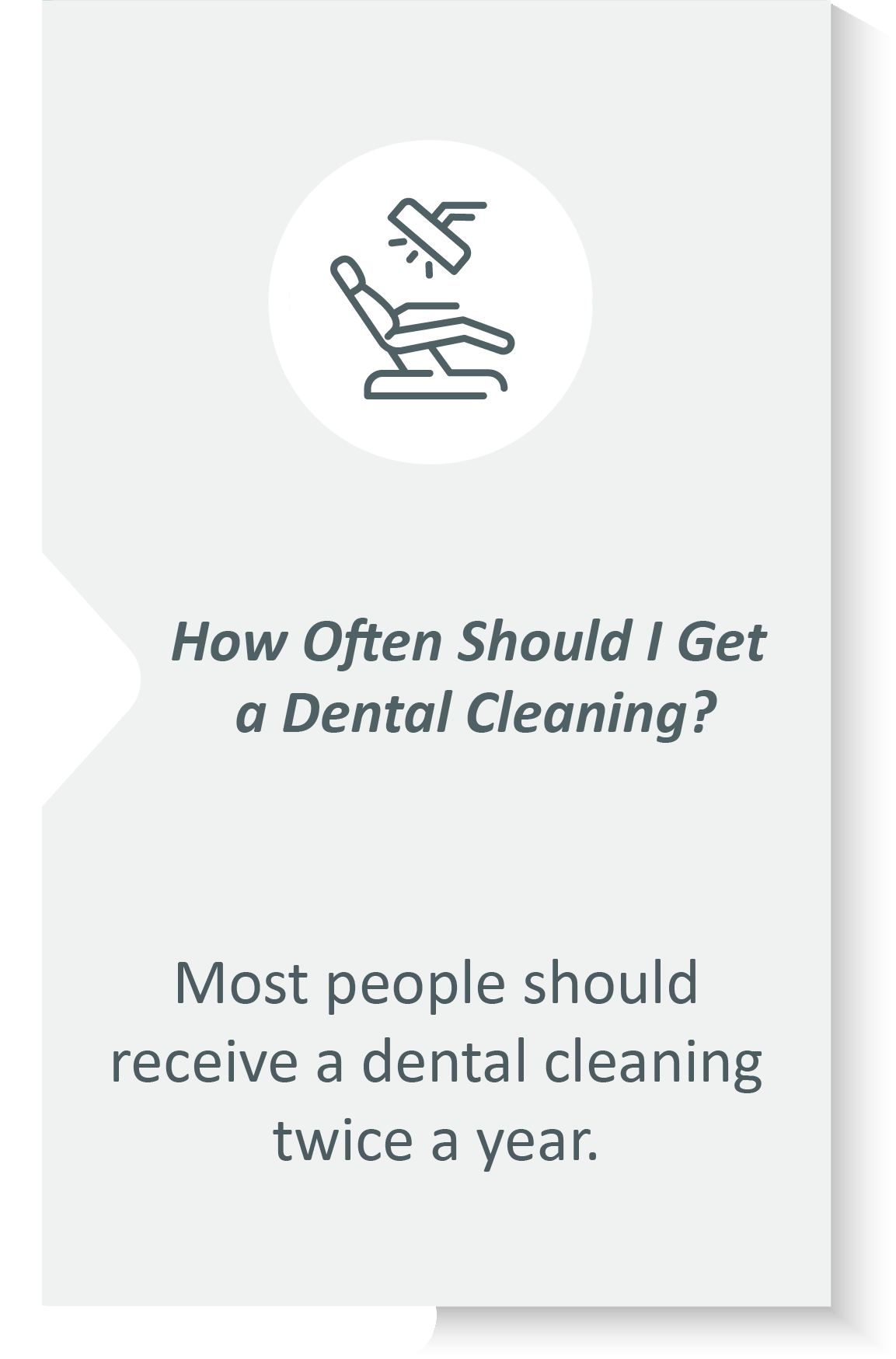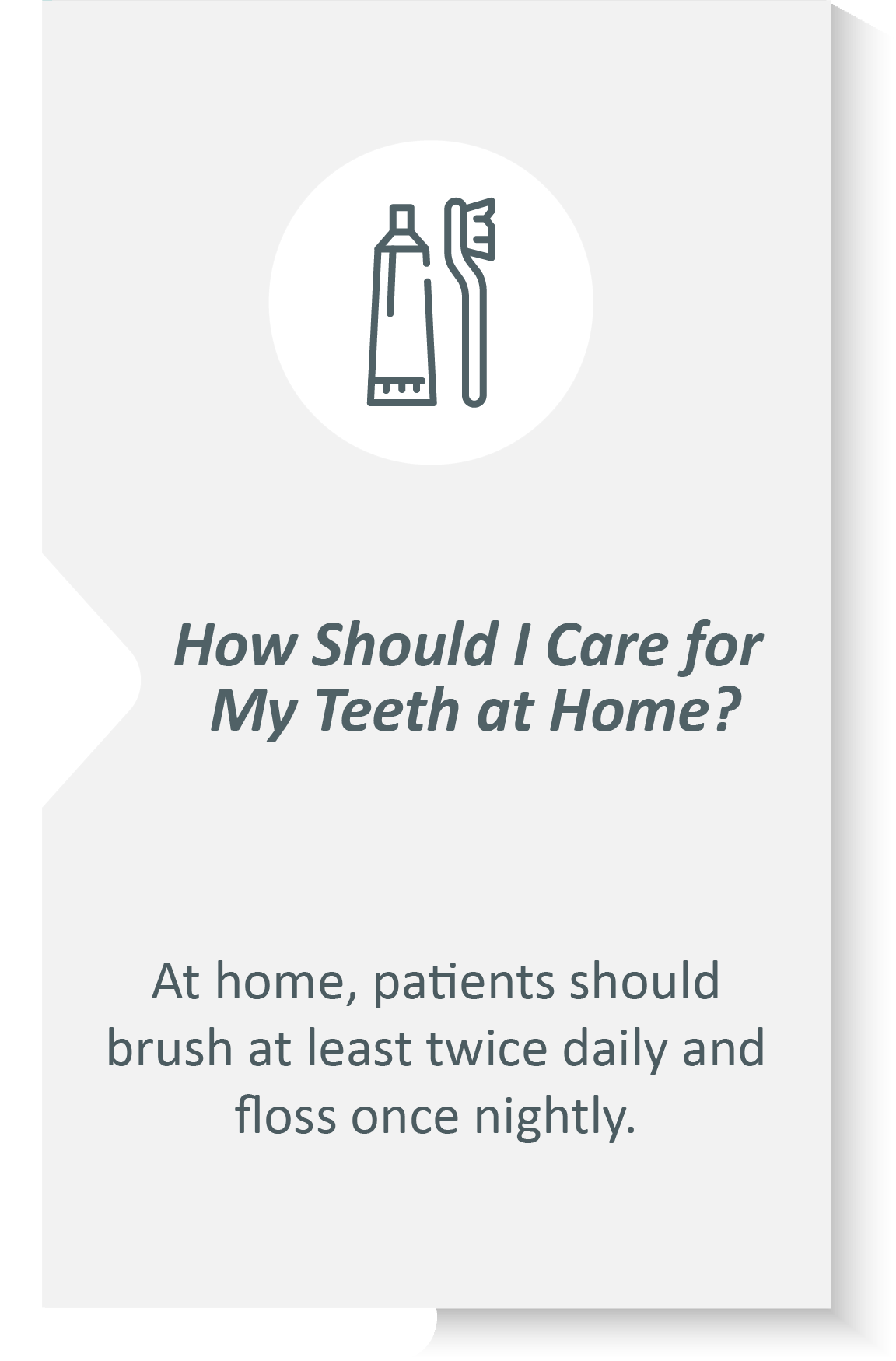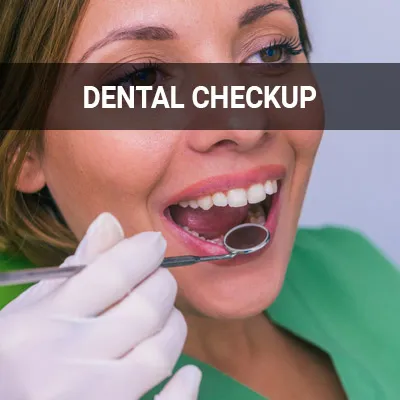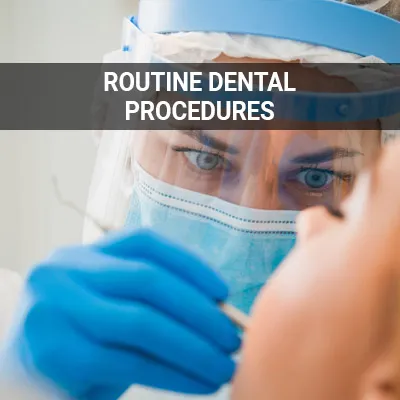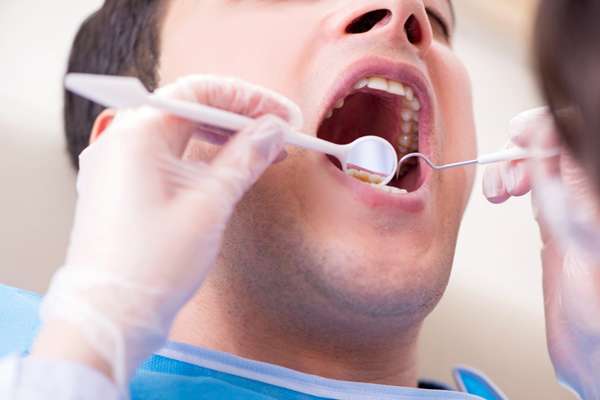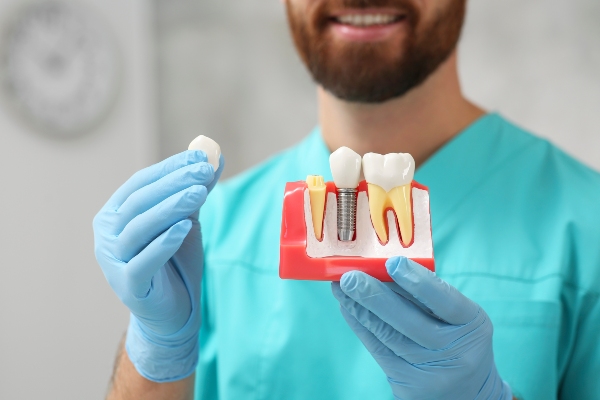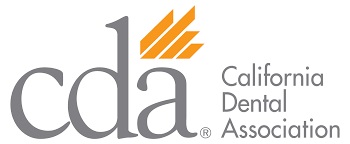Dental Cleaning and Examinations Upland, CA
Dental cleaning is a crucial part of regular dental checkups and examinations. It keeps the smile healthy and free of disease. The dental cleaning process includes plaque removal, flossing, polishing, and an examination of the gums. Those who keep up with their regular appointments and at-home oral hygiene routine should experience simple and efficient dental cleaning appointments.
A specialized dental professional is responsible for this part of a dental examination and will answer any questions someone might have, help address their oral health concerns, and provide guidance on how they can keep their smile in the best shape possible. To schedule your dental cleaning, contact our Upland Dental Group And Implant Center team at (909) 660-6080 today.
What to Expect During the Dental Cleaning Process
Physical Examination
Before the cleaning begins, the dental professional will take a look at the entire mouth with a small mirror. This mirror is angled so that they can see all around the mouth, gums, and teeth. During this examination, they will look for signs of oral health concerns, such as inflamed gums, which may indicate gingivitis the first stage of gum disease. Unless there are any problems detected, the examination and cleaning are taken care of by the dental professional without needing to consult anyone else.
Scaling
The dental professional will use a scaler to remove any plaque or tartar that has built up on the surface of the teeth since the last dental examination. This is important because buildup can lead to tooth decay and cavities. A scaler is a special tool that looks like a hook. The dental professional uses it to remove the plaque on the teeth and around the gumline. It is normal to hear scraping sounds during the scaling. With regular brushing and flossing, scaling should not take too long.
Cleaning
After the dental professional has removed the plaque, they will use a gritty toothpaste and electric brush to smooth and polish the teeth. The brush may be noisy, but the brushing itself is unlikely to cause discomfort. The toothpaste has a gritty substance to help get rid of any leftover plaque that the scaling might have missed, and the paste itself will polish the teeth to protect them from the buildup of bacteria between checkups.
Flossing
Flossing should be part of everyone's regular at-home oral care routine. For people who do not floss regularly, there may be some discomfort during this part of the dental cleaning. The dental professional will use a thin piece of floss and glide it between each tooth to remove any plaque that might be present. They will likely ask how often the patient flosses and offer some suggestions for at-home care.
“Unless there are any problems detected, the examination and cleaning are taken care of by the dental professional without needing to consult anyone else.”
The Power of the Dentist’s Fluoride and Equipment
At the end of the dental cleaning, the patient will likely be asked to rinse with a special fluoride mouthwash. Mouthwash that contains fluoride is a useful addition to any oral hygiene routine. If the dentist recommends this fluoride treatment in the office and at home, it helps protect the teeth against the development of tooth decay. Like the scaler, toothpaste, and electric brush used during the cleaning, this treatment is extra powerful, but not harmful.
“Mouthwash that contains fluoride is a useful addition to any oral hygiene routine.”
Cleaning Sensitive Teeth
As long as they have followed the recommended at-home oral care guidelines, most people do not have issues with sensitive teeth. But if they do, they should let the dental professional know at the start of the appointment. If they are aware of the sensitivity, they can recommend ways to reduce the discomfort before, during, and after the cleaning. During the cleaning, they may check for areas of sensitivity to see if any issues should be addressed. They may also have additional recommendations for home care to make the next visit more comfortable.
“As long as they have followed the recommended at-home oral care guidelines, most people do not have issues with sensitive teeth.”
Check out what others are saying about our dental services on Yelp: Dental Cleaning and Examinations in Upland, CA
The Difference Between a Dental Cleaning and Deep Cleaning
A dental cleaning is a regular, routine cleaning that should be scheduled every six months to keep the mouth healthy and clear of harmful plaque. A deep cleaning, however, may be necessary for those who have not had a normal dental cleaning in some time. Deep cleaning is recommended when there are bacteria or tartar in pockets between the teeth and gums. These bacteria could lead to gum disease and, if not addressed, tooth loss.
Deep cleaning is also called scaling and root planing. While scaling removes buildup from around the gums, root planning goes deeper. During root planing, the dental professional will remove buildup from the surface of the tooth roots. It may take multiple deep cleanings over time to be completely successful.
“Deep cleaning is recommended when there are bacteria and tartar in pockets between the teeth and gums.”
Questions Answered on This Page
Q. What happens during a dental cleaning?
Q. Why does the dentist use fluoride mouthwash in the cleaning?
Q. What should patients do if they have sensitive teeth?
People Also Ask
Q. What do dental sealants do?
Q. What happens during a routine dental checkup?
Q. What should people discuss during an office visit?
Q. What should be included in an at home oral health routine?
Q. Why is it important to educate the family about oral healthcare?
Frequently Asked Questions
Q. What is a dental cleaning?
A. A dental cleaning is a routine dental appointment where a dental professional will assess oral health and clean the teeth. During this cleaning, they will remove the buildup of bacteria, or plaque, and polish the teeth to protect them until the next cleaning. This appointment is typically quick and simple for those who maintain regular appointments and follow an at-home oral care routine.
Q. What is dental scaling?
A. Dental scaling is part of a routine dental cleaning. As the dental professional cleans the teeth, they will use a specialized dental tool that looks like a small metal hook to remove plaque and buildup from the surface of the teeth. This process is referred to as scaling.
Q. What is a deep dental cleaning?
A. Deep dental cleaning is very similar to a routine dental cleaning. This cleaning is typically recommended for anyone that has not had a routine dental appointment in a long time or anyone who has excessive buildup on the teeth or beneath the gums. This deep cleaning is also called scaling and root planing, and it goes beneath the gum line to remove harmful bacteria to clean and protect the teeth.
Q. What should someone do in a dental emergency?
A. If anyone experiences a dental emergency, they should immediately contact our dental team. Dental emergencies include things such as knocking out a tooth or experiencing dental trauma. The more quickly our team can assess and address the emergency, the better. Always remember that medical emergencies should be handled by a medical professional. If someone is experiencing a medical emergency, they should call 911.
Q. What should people do in between dental cleanings?
A. To maintain good oral health between professional cleanings, patients are advised to brush, floss, and rinse with mouthwash daily. Our team may advise you to take additional steps depending on your oral health situation. Also, your dentist may recommend avoiding smoking or any other activity known to be harmful to oral health.
Dental Terminology
Prevent Dental Emergencies
These cleanings can help prevent expensive dental emergencies and other common oral health concerns, such as cavities. Follow the recommended at-home routine and schedule cleanings every six months. Scheduling your routine dental cleaning is as easy as calling our team in Upland, so call us at (909) 660-6080 today.
Helpful Related Links
- American Dental Association (ADA). Glossary of Dental Clinical Terms. 2024
- American Academy of Cosmetic Dentistry (AACD). Home Page. 2024
- WebMD. WebMD’s Oral Care Guide. 2024
About our business and website security
- Upland Dental Group And Implant Center was established in 2016.
- We accept the following payment methods: American Express, Cash, Check, Discover, MasterCard, and Visa
- We serve patients from the following counties: Los Angeles County, San Bernardino County and Riverside County
- We serve patients from the following cities: Upland, La Verne, San Dimas, Rialto, Pomona, Claremont, Montclair, Fontana, San Bernardino, Rancho Cucamonga, Ontario, Hesperia and Apple Valley
- Norton Safe Web. View Details
- Trend Micro Site Safety Center. View Details
Back to top of Dental Cleaning and Examinations

